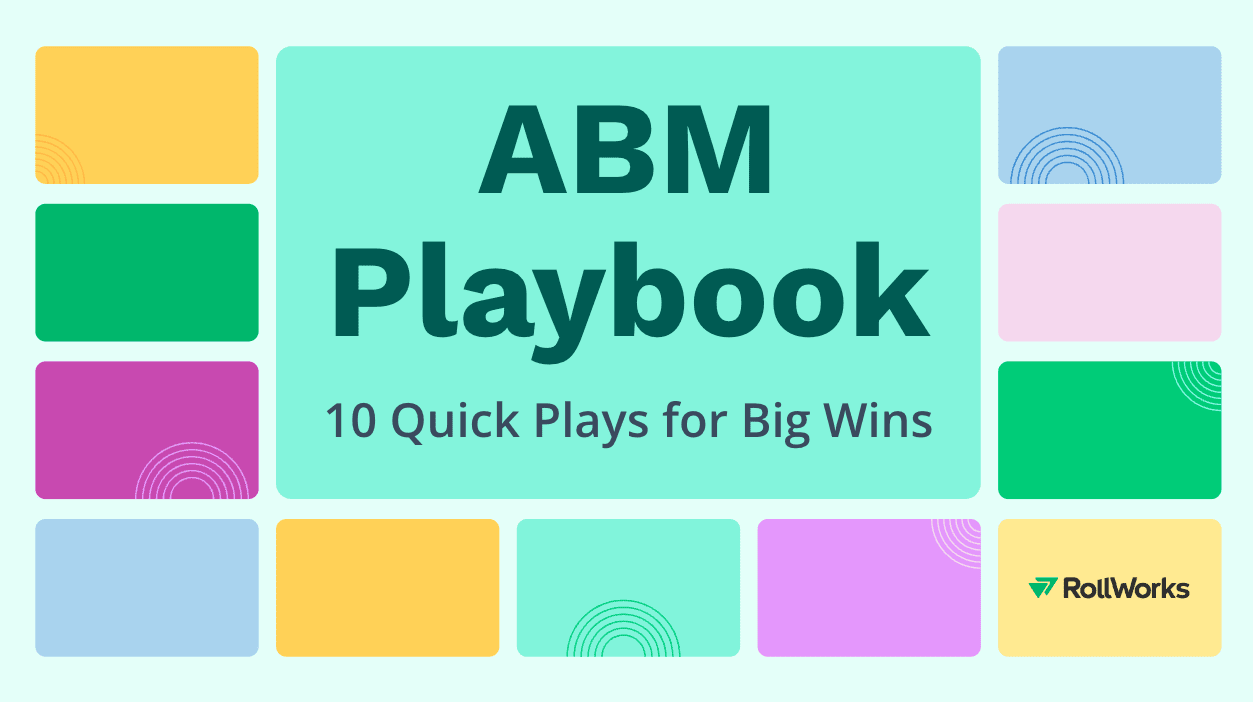Account-based marketing (ABM) is a strategy that’s taken off in popularity over the past few years. It’s a smart approach for B2B companies of all sizes that need to reach and influence multiple buyers within an account.
ABM is an approach that starts with thinking about the account (company) level fit first, and then layers on data and signals from buyers (individuals) within that account. In other words, ABM strategy is based on an objective, data-driven identification of high-value accounts, and engagement of buying committees within those accounts through coordinated marketing and sales efforts.
At its essence ABM strategy is based on an objective, data-driven identification of high-value accounts, and engagement of buying committees within those accounts through coordinated marketing and sales efforts to turn them into customers.
Businesses that want to try ABM have a lot of options when it comes to which account-based marketing company to work with. So how do you know which ABM company is the right partner for you?
What to Look for in an Account-Based Marketing Company
The success of your ABM campaigns and programs will depend on your own efforts, but it will also be influenced by the ABM vendor you choose to work with. Listed below are four things you should consider when choosing an account-based marketing company.
1. The functionality of the software
Naturally, the first thing you’ll want to assess is the functionality of the software you’re considering. Can the tool do what you need it to do? In particular, any ABM solution you’re considering should do the following three things:
Identify your ICP and TAL
The foundation of any account-based program comes from a strong target account list (TAL) made up of accounts that match your ideal customer profile (ICP). The right ABM solution will offer a dynamic sync with your marketing automation or CRM databases and can even help expand on these lists by suggesting news accounts that match your ICP.
Once you’ve integrated your ABM software with your CRM, you’ll begin to identify accounts within your current database. You’ll want to sort these accounts into lists depending on a variety of different factors.
These factors include firmographic data like company size, industry, and geographic location. But you’ll also want to consider behavioral data (intent and engagement signals) as well. The right ABM solution will be able to identify this data and segment your accounts all within one centralized location.
Ask yourself:
- Can the platform identify accounts based on a variety of data, including firmographic and behavioral (engagement and intent) signals?
- Does the vendor provide account scoring based on fit and behavioral signals? Is it static or dynamic?
- Does the platform trigger any real-time account alerts based on changes in account behavior?
- Does the vendor offer dynamic account lists? Can you segment your target account lists by firmographic or behavioral attributes?
Engage target accounts
According to Gartner, the typical B2B buying process includes six to 10 different decision-makers. Each of these individuals will gather their own information independently, and then they’ll have to reconcile this as a group. This is why the B2B sales cycle can sometimes take months or even years to complete.
The right ABM software will engage the full buying committee at your target accounts. A good platform will enable engagement through digital ads, retargeting, automated sales outreach, and other channels like direct mail / gifting, email signature banners, and personalized content experiences.
Ask yourself:
- Does the vendor offer multiple channels for engaging accounts, either through native capabilities or partnerships? (digital ads, paid social, email, web, chat, gifting, etc)
- Can you personalize campaigns within the platform (personalized ads & landing pages / content experiences) either through native capabilities or partnerships?
- Does the product allow you to engage accounts based on their stage in the funnel?
- What kind of reach does the vendor’s digital advertising offering have?
Measure your results
And finally, no marketing strategy is complete unless you have a way to measure and evaluate your results. A good ABM solution will have detailed campaign analytics and reporting.
Ask yourself:
- Does the platform offer account and campaign-level measurement capabilities?
- Can you build your own reports and dashboards?
- Can you track your impact all the way down to pipeline and revenue?
2. MarTech stack integrations
Your ABM software should be able to integrate with your current customer relationship management (CRM) and marketing automation platform (MAP) software. This way you can pull data in from your CRM and MAP, and track activity and results across sales and marketing programs. Better yet, look for an ABM company that partners with other best-in-class martech tools, data providers, and engagement platforms, to give you a full suite of capabilities without needing an expensive all-in-one solution.
Ask yourself:
- Which marketing technologies does the ABM platform integrate with? Think CRM, MAP, web-site personalization chatbots, email automation, gifting platforms, etc.
- Are these integrations bi-directional?
3. Service and support
Any software platform is only as good as what you get out of it. And a great customer support or customer success team can help you get the most out of your ABM platform. The best choice will be an ABM company that is as focused on your success as you are. Look for a company that has a team of experts to help you launch effective campaigns and optimize your programs.
Ask yourself:
- What type of onboarding and training is offered?
- Does the vendor offer real-time support via email or chat?
- Can you get strategic consultation from your customer success manager?
4. Customer success stories
Implementing an account-based approach can be challenging, but happy customers will show that it can be done with the right platform.
Results speak louder than words, so any ABM company you choose to work with needs to have a proven track record of helping customers succeed. What kinds of results have that vendor delivered to its customers in the past?
Look for case studies that show real numbers, browse customer reviews on trusted sites, and ask your peers in B2B marketing which ABM company they trust. Be sure to focus on finding customers that share some attributes with your own. For example, an ABM company that only has large enterprise customers probably won’t be the right fit for a small business.
Next Steps
If you’re looking to try an account-based approach, or to scale your ABM programs, an ABM platform can help, but only if you partner with the right account-based marketing company. Feel free to schedule a demo to learn more about whether RollWorks might be the right fit for you.































